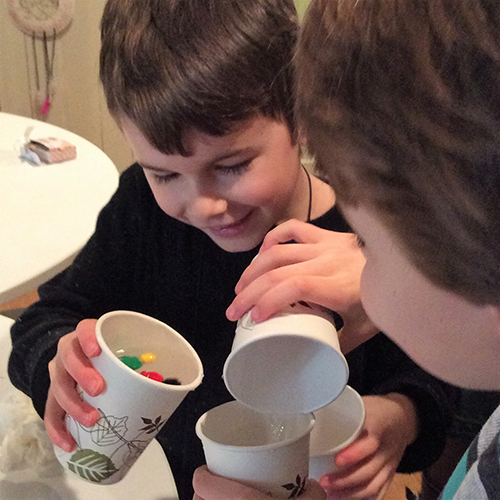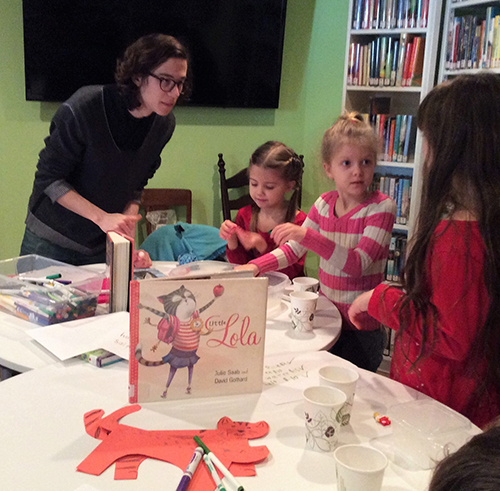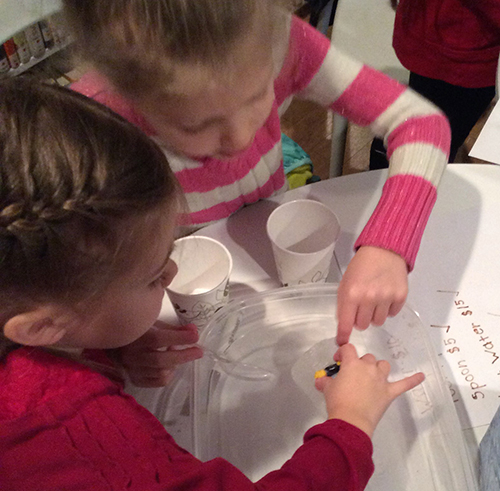Program Idea: Homeschool Libratory
 A program for homeschooling families is something your library can do that is of great value to the community. It costs little. And it drives a lot of traffic and circulation. But best of all, we really look forward to this happy group of young patrons filling the children's room with enthusiasm and chatter each week. We enjoy watching them grow and develop over years.
A program for homeschooling families is something your library can do that is of great value to the community. It costs little. And it drives a lot of traffic and circulation. But best of all, we really look forward to this happy group of young patrons filling the children's room with enthusiasm and chatter each week. We enjoy watching them grow and develop over years.
Red Hook Public Library, NY, is chartered for a village of 1,961 people; however we have about 4,500 cardholders and serve several surrounding communities. We have had a homeschoolers' program for about six years now and it has been consistently well attended. Typically our "Homeschool Libratory" brings in 12-18 children, plus their caregivers, each week. It is a one-hour program at 10:30 Thursday mornings, though often families stay long after the program is finished.
Library's Value to Homeschool Community
We've asked our homeschool community why they value the library program. They told us they need the socialization, for the children and for themselves. They do not have the constant connection that happens as a result of kids being in school every day. One mom told us she tried to do get-togethers with her homeschooling peers at home, but there simply was not enough room in her house. We have the space, the glue, the crayons, two dozen pairs of scissors and 8,734 kids books!
Homeschoolers value the educational opportunities we provide. Parents often build upon concepts introduced at the library when they get home. And truly, if ever there was a good marriage of programming and circulation, this is it. Whatever your theme of the day, be sure to display a lot of related materials. We find that homeschoolers in general are very heavy library users. They will check out many books, return them the very next week, and check out another tall stack. So volume and turnover are high. It is heartwarming to see your library being utilized so fervently.
Yet another reason a parent gave us for loving the homeschooling program is that they are, after all, paying school taxes. Since they are not using the school's services, they see using the library as a way of harvesting their share of that investment. Not a bad point! These folks will support your library and its value to the community.
Homeschool "Libratory" Program
Our program originally involved stories and simple crafts. It evolved and changed over the years as their needs and ours also changed. By 2014 we were combining readings, poster board displays and videos with more formal lessons in subjects like history, art, English and geography. Often we did complex activities such as modeling the moon and planting and nurturing seeds to be transplanted into our Children's Garden. Other times we presented simple cut-and-paste crafts or played learning games.
 In early 2016, when we did a large renovation and could not have patrons in the library before 4:00 pm, our homeschooling group moved to an alternate site. However, that group dissolved and in 2017 we decided to try reinstituting our program. We worried that we'd lost our core group and also that as the children were all a year older, many would not be interested in returning.
In early 2016, when we did a large renovation and could not have patrons in the library before 4:00 pm, our homeschooling group moved to an alternate site. However, that group dissolved and in 2017 we decided to try reinstituting our program. We worried that we'd lost our core group and also that as the children were all a year older, many would not be interested in returning.
We asked for advice from a homeschooling mom we know as to what type of program would be useful. She told us that many homeschooling parents have a hard time teaching science. For that reason, and because we've made an informal commitment to the school system to present STEM programming, we decided to focus on science this year. Thus our program was re-designed and Homeschool Libratory was born. Typically the program starts with a short lecture, video or reading, then a game, activity or experiment follows. So far we've had a great response. And, happily, we've attracted many new families this time around.
We've mentioned some of the many benefits of hosting homeschooling programs. There are some challenges as well. One issue is that homeschooling families will often attend programs as a unit. In other words, they will arrive with children of all ages in tow. So our program has to accommodate a wide range of abilities. John, our Program Coordinator and head Libratorian, tries to design activities for children ages 6 through 12. But he knows that preschoolers and the occasional teen will also attend.
For the very young ones, he sets up trains, blocks and other interactive toys. There are also AWE computers available at all times, puzzles and coloring materials. For the older kids, John is ready with more challenging questions and slightly harder variations of the day's project. He knows he may have to modify activities on the fly depending on who shows up. Fortunately for us, John has a degree in biology. (Hint: Build on the interests and talents of your staff! Perhaps your program will be "Homeschool Historians.")
Outreach to Homeschooling Families
 Another potential challenge with homeschoolers is that they do not receive information via the school system as most of our young families do. We reach out to the homeschooling population by way of press releases that go not only to newspapers, but to local online discussion groups. We also promote on Facebook, especially via local groups of interest to families.
Another potential challenge with homeschoolers is that they do not receive information via the school system as most of our young families do. We reach out to the homeschooling population by way of press releases that go not only to newspapers, but to local online discussion groups. We also promote on Facebook, especially via local groups of interest to families.
The homeschooling community tends to be tightly knit. They know each other. So do not underestimate the value of word of mouth. If you know one homeschooling family from the checkout desk, ask them to spread word of your program. Once your program starts, we recommend keeping a list of emails so that if you should need to cancel or change the schedule, you have a way to get in touch with everyone who normally attends.
All in all, libraries and homeschoolers make ideal partners. Our advice is to seek out homeschooling families, ask what kinds of programs they want, and do your best to provide them. And, of course, if you have questions or need to bounce ideas around, give us a call anytime! Ask for Dawn, Paul or John at 845-758-3241.
Photos:
These photos were taken in January during a lesson on "freezing point depression" or, for the rest of us, "how salt decreases the temperature at which water freezes." Libratory Program Coordinator, John, has frozen Lego characters in blocks of ice and the children are melting them with different methods including hot water and salt.
